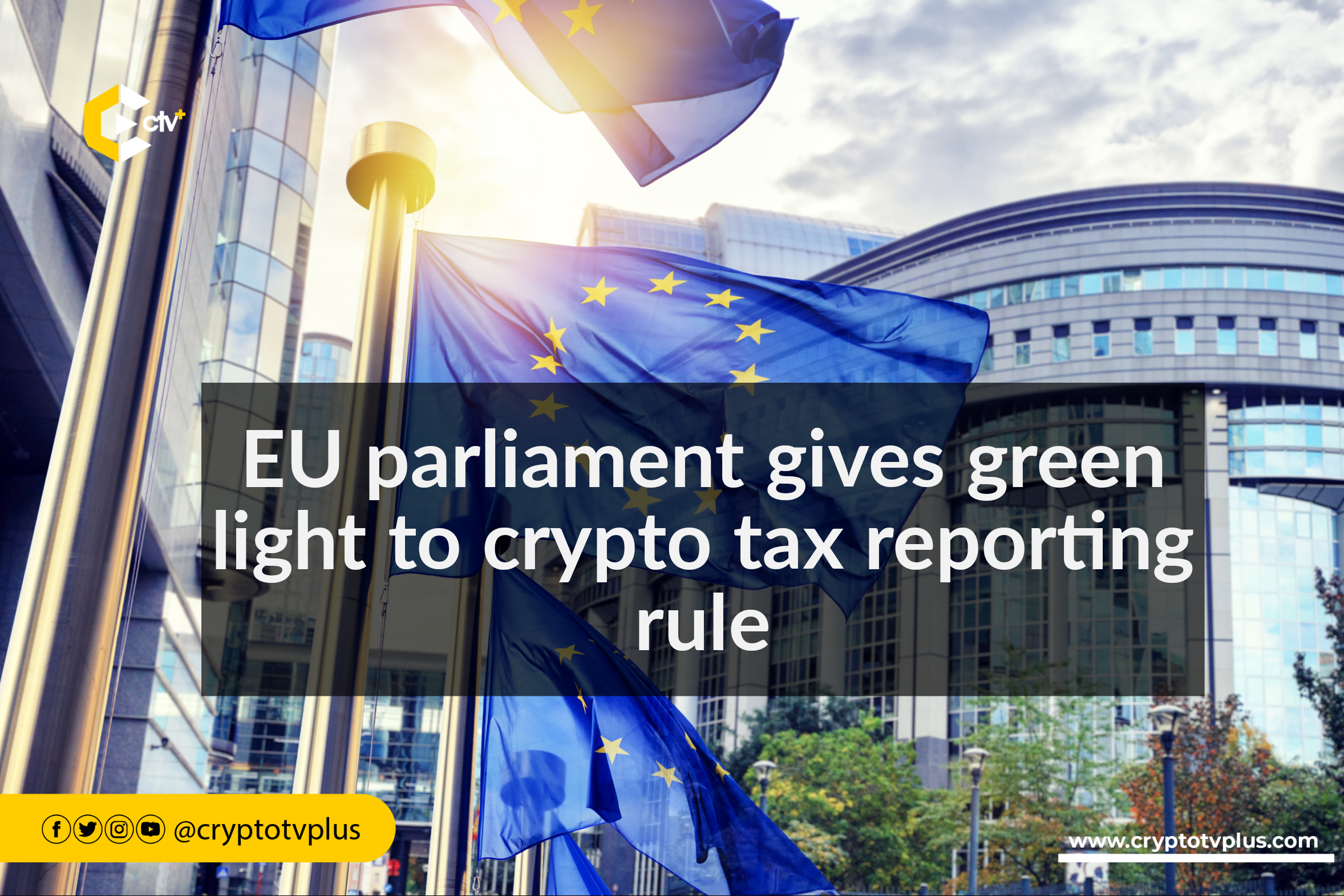News
EU parliament gives green light to crypto tax reporting rule

The European Parliament lawmakers have thrown their weight behind a comprehensive tax-reporting rule for cryptocurrency transactions. According to Bloomberg, approximately 90% of voters expressed their approval for this tax regulation within the region.
The decision was made at a plenary session held on September 13 in Strasbourg, France, where the lawmakers voiced their support for imposing stricter tax reporting obligations on crypto exchanges.
Enforcing the rule means that European tax authorities can monitor cryptocurrency trading and income, effectively reducing the likelihood of tax fraud.
The global adoption of cryptocurrencies has sparked conversations covering various aspects, including acceptance, regulation, and taxation.
Interestingly, Dubai stands out as a unique destination, as it currently does not enforce any taxation laws about cryptocurrencies for its users and businesses.
This distinctive policy has significantly contributed to the growing attraction of crypto traders, businesses, and influencers migrating to this vibrant city in the Middle East.
Europe and Crypto taxation
In Europe, a Hello Safe report reveals that Denmark has the highest tax rates among countries, ranging from 37% to 52.06%. Sweden follows closely with a 30% tax rate, and Portugal comes next at 28%.
While Portugal used to be a tax-friendly place for cryptocurrency, the government decided to impose a 28% tax.
The figure for other countries are Austria (27.5%), Italy (26%), Ireland (20-40%), Latvia (20%), Slovakia (19-25%), Poland (19%), Czech Republic (15-23%), Hungary (15%), Croatia (10%), and Bulgaria (10%).
The general imposition of crypto taxation rules started Back in December 2022 when it was proposed by the European Commission.
This was followed by another discussion held in May 2023 where the Commission established its general approach to the proposal during the Economic and Financial Affairs Council.
It’s also not surprising as Europe launched MiCA, the Markets in Crypto-Assets (MiCA) legislation on May 16. MiCA is a proposed EU law designed to establish a comprehensive legal framework for regulating cryptocurrencies.
It aims to unify and simplify regulations across EU nations, set clear rules for crypto service providers and token issuers, and provide regulatory certainty in areas not covered by existing financial rules.
With these developments, the European Union stands as a pivotal entity in the creation and enforcement of crypto regulations around the world.
Read also; Jacobi Launches Europe’s First Institutional Bitcoin ETF


















